Discover In Our Defence
In Our Defence

In Our Defence
Author: India Today Podcasts
Subscribed: 40Played: 439Subscribe
Share
Copyright © 2022 Living Media India Limited
Description
There are boundary disputes and then there are outright wars. Hot and cold. Diplomatic and military. This podcast will dissect all that’s mean and subtle about the defence of our nations. A weekly podcast where our host Dev Goswami is joined by India Today TV Output’s Senior Executive Editor, Shiv Aroor, to discuss on defence policy issues.
102 Episodes
Reverse
The Indian Air Force is preparing for a significant upgrade with the upcoming test of the Defence Research and Development Organisation (DRDO)'s Astra Mark 2 air-to-air missile. This missile, capable of hitting targets up to 130 km away, is a game-changer for India's air combat capabilities. The DRDO has been developing these missiles since 2001 to engage distant targets effectively.In this episode, Dev Goswami and defence expert Shiv Aroor discuss the importance of long-range missiles like Astra Mark 2 for modern air battles and why India needs them. They also reflect on the post-Balakot skirmish, which took place on 27 February 2019. India faced challenges in maintaining its position despite the Pakistan Air Force's (PAF) anticipated retaliation after the Balakot airstrike. The podcast analyses the dynamics of the skirmish and identifies the reasons that pinned India down.This and more in In Our Defence!Listen in!Produced by Anna PriyadarshiniSound mix by Sachin Dwivedi
In the heat of election season, a recent report from The Guardian has sparked controversy. It claims that Prime Minister Narendra Modi's office ordered assassinations in Pakistan, as revealed by Indian and Pakistani intelligence sources.According to the report, the Research & Analysis Wing (RAW), an agency that PM Modi's office directly controls, had undertaken the strategy to "eliminate terrorists living on foreign soil".However, the report contained many glaring errors, not only grammatically but factually, too. So, has the Guardian done PM Modi a favour? Or has it put India "into trouble"?There's a paradox: India wants to embrace The Guardian's story politically but deny it diplomatically. Has India admitted to carrying out killings in Pakistan?Host Dev Goswami and defence expert Shiv Aroor decode.**Revisit our earlier episode about mysterious deaths, possibly linked to an unidentified Indian hit squad here: Listen in!Produced by Anna PriyadarshiniSound mix by Sachin Dwivedi
This week, China released a fresh list of 'renamed' places in Arunachal Pradesh. This was yet another attempt by Beijing to assert its claim over the north-eastern Indian state that for long China has claimed to be its "integral part". India called China's move to rename the places "senseless", saying, "Assigning invented names will not alter the reality that Arunachal Pradesh is, has been, and will always be an integral and inalienable part of India. The development brings into focus the fact that Arunachal Pradesh is, and has been, a core subject of India-China tensions. On this episode of In Our Defence, host Dev Goswami and defence expert and senior journalist Shiv Aroor trace the history of tensions between India and China over Arunachal Pradesh. The two revisit the 1962 war, where India suffered a humiliating defeat at the hands of the Chinese army, a defeat that was particularly humiliating in the Arunachal Pradesh, then known as the North-East Frontier Agency, sector. They discuss the lessons learnt from the war and where things stand today. Also on the episode is a dive into why dealing with China - militarily or diplomatically - is such a challenge and, at times, frustrating. Tune in.
Rakesh Kumar Singh Bhadauria, former chief of Air Staff, recently made headlines by joining the BJP ahead of the 2024 Lok Sabha elections. In 2014, former Army Chief, General VK Singh, had also joined the party before the Lok Sabha elections. He had cited the BJP as the "only party" in India embodying nationalism, and not only did he join the party but he also clinched a ministerial role. In this episode, host Dev Goswami and defence expert Shiv Aroor discuss the trend of ex-military chiefs entering politics. What's the deal with the intersection of military and politics? Is it concerning? Shiv brings up a crucial point: While many retired military figures, such as ex-chief of army staff Dalbir Singh Suhag, have landed government roles after retirement, joining a political party is a whole different ball game. India is a democracy, and individuals are entitled to exercise their constitutional rights. Yet, does this trend hint at a bias? What happens when military and politics overlap? Does political influence cloud military judgment? These are weighty questions that Dev and Shiv delve into, recounting Gen VK Singh's Singh's court case against the UPA government. What was it? Tune in to know! Produced by Anna Priyadarshini Sound mix by Sachin Dwivedi
Ever wondered what a high-tech futuristic modern war would look like, especially with Artifical Intelligence coming in? Where might conflicts arise, and who will be involved? How will these wars unfold, and what technologies will shape them?On this episode, host Dev Goswami and defence expert Shiv Aroor try to visualise the multifaceted nature of future warfare, from economic tactics to space militarisation and beyond.Shiv suggests that the current India-China standoff is just a glimpse of future wars, emphasising the role of kinetic weapons and advanced weaponry in potential conflicts.The two also venture into a theoretical and hypothetical example of what an Indian liberation of Tibet would look like.Listen in as the duo creates a fearful scenario of the potential realities of tomorrow's battlefield.Produced by Anna PriyadarshiniSound mix by Sachin Dwivedi
From an ambitious fighter jet project to a landmark missile test, the last few days marked important milestones for the nation’s defence. India test-launched the nuclear capable Agni-V missile in a ‘multiple independently targetable reentry vehicle’, or MIRV, avatar. Just days before, the government gave the all-clear for the development of the AMCA, or Advanced Medium Combat Aircraft, a fifth-generation fighter jet that will feature cutting-edge technology. On this episode of In Our Defence, host Dev Goswami and Defence expert Shiv Aroor discuss these two projects and what they mean for the Indian Air force and the country’s nuclear arsenal. The two also briefly discuss the unfortunate crash of the Tejas fighter jet, the first in its service history. Tune in! Produced by Anna Priyadarshini Sound mix by Sachin Dwivedi
This week, the Indian Navy made significant moves. They officially launched the first squadron of MH 60R Seahawk helicopters, boosting their surveillance and combat abilities at sea. The commissioning ceremony for the INAS 334 'Seahawks' naval air squadron took place at INS Garuda in Kochi. In addition, India opened a new naval base on Minicoy Island in the Indian Ocean, near the Maldives, amidst strained relations. This base, INS Jatayu, is strategically important, being India's furthest western base and around 125 km from the Maldives. In this episode, host Dev Goswami and defense expert Shiv Aroor, discuss these developments and the significance of Lakshadweep for the Indian Navy. Why is it that Andaman and Nicobar islands have been given a greater focus than Lakshadweep, an archipelago who has always had a limited military presence? How timely is the establishment of the new navy base on the archipelago? And in the midst of this, how does Anant Ambani and Radhika Merchant’s pre-wedding bash in Jamnagar, come into the picture? Well, tune in to find out! Produced by Anna Priyadarshini Sound mix by Kapil Dev Singh
This week, host Dev Goswami and defence expert Shiv Aroor delve into the harrowing events of November 26, 2008, when 10 Pakistani terrorists infiltrated south Mumbai via the sea, launching a series of devastating attacks.Recounting the gruesome assault orchestrated by the Pakistani terrorist group Lashkar-e-Taiba (LeT), which claimed 166 lives and left over 300 injured, Shiv shares his firsthand experience of being present outside the Trident-Oberoi on Marine Drive that fateful evening.The duo examines how this incident spotlighted glaring deficiencies in India's intelligence apparatus—highly-trained security forces, including the Mumbai Police, Central Industrial Security Force (CISF), National Security Guard (NSG), and Marine Commandos (MARCOS).Was this India's 'Kargil moment'? Shiv argues it was ‘far worse’. They scrutinise the factors contributing to the failures, including questions about the ‘political will’ of the then UPA government to not respond aggressively, influenced by the geopolitical landscape, particularly the US-Pakistan relationship.What are the lessons learned and the evolution of India's security posture since the tragedy? And why Shiv advocates against labeling it solely as a ‘terrorist attack’, for a nuanced understanding of the attacks?Tune in to know!Produced by Anna PriyadarshiniSound mix by Kapil Dev Singh
This week, host Dev Goswami and defence expert Shiv Aroor talk about India's nuclear setup. They dive into why India decided to go nuclear back in the 1980s and 1990s, explaining the concept of the nuclear triad. What does it mean, and why has it been so challenging to complete the submarine part of this triad? And why do we need submarines like the INS Arihant or INS Arighat to finish the triad? What exactly can India do with its nuclear weapons? And why is there so much secrecy surrounding these operations? Let's imagine for a moment: if a nuclear attack were to happen, what would it look like? And they ponder the paradoxical nature of the nuclear world. What is it? Tune in to find out more! Read Sandeep Unnithan's story on India's indigenous nuclear submarine project here. Produced by Anna Priyadarshini Sound mix by Kapil Dev Singh
In January 2020, General Bipin Rawat became the first Chief of Defence Staff (CDS) of the Indian Armed Forces. However, his tenure was tragically cut short by a helicopter crash in December 2021. The position remained vacant for almost nine months until General Anil Chauhan took over. Why did it take so long to fill the CDS position after General Rawat's passing? Was there genuine effort to reach political consensus earlier?There were also concerns whether the CDS post was created solely for General Rawat, believed to be a favorite of the Modi government. Has the CDS role achieved anything substantial? What was the dream when the post was conceptualised and where do we stand now?Host Dev Goswami and defense expert Shiv Aroor delve into the history of the CDS position, tracing it back to the Kargil war. The Kargil review committee, formed in 1999, recommended the CDS position due to evident lack of coordination between the army and air force during the conflict. But, are India's armed forces truly 'joint' despite the creation of the CDS role in 2019?The duo also reflects on General Rawat's legacy, marked by controversies like his remarks classifying the Air Force as a 'support arm’, in an India Today interview. Does this hint at deeper divisions within the military?Examining progress towards synergy among the armed forces, they ponder whether India is truly advancing in jointmanship or still grappling with turf wars and egos, exemplified by debates over HAL Prachand helicopters.Listen in!Produced by Anna PriyadarshiniSound mix by Nitin Rawat
Indian army chiefs have consistently emphasised the sensitivity of the India-China situation for the past four years. What is the current ground situation, and why is it unfavorable for India with the looming Chinese threat?Host Dev Goswami and defence expert Shiv Aroor delve into these questions in this episode.Numerous reports have been of Chinese "spy ships" in the Indian Ocean region. What defines these "spy ships," and why isn't India's response widely discussed in the media, considering other countries also deploy research vessels for strategic purposes? And why is there concern without specific laws prohibiting Chinese "research vessels" from conducting surveillance activities?Are there noticeable changes happening at the tactical level?One significant advantage India holds over China is its extensive knowledge of the Indian Ocean's geography, including depths, water intensity, and temperature, crucial for submarine warfare. But, China excels in submarine capabilities, posing a challenge for India.The duo also discusses reasons for the Indian establishment's shift from focusing on Pakistan to now China over the past decade or so. What does this denote, and how did India reach this point?Listen in!Produced by Anna PriyadarshiniSound Mix by Kapil Dev Singh
We live in an age where drones are everywhere. In this episode, host Dev Goswami and defence expert Shiv Aroor delve into the world of UAVs or UAS, commonly known as drones. These unmanned air systems have played pivotal roles in global events, from the U.S. war on terror to conflicts in Ukraine, Israel-Hamas, and Azerbaijan-Armenia. Despite their ubiquitous presence, popular culture and mainstream defense writing lag in portraying the significance of these non-human aircraft. Why?While India boasts a list of domestically manufactured drones, none are currently in service. The discussion delves into the reasons behind India's delayed adoption and the increasing involvement of private companies in the drone ecosystem.The duo also contemplates the potential takeover of drones by AI, about the elimination of the human loop and the future of drone warfare. What game-changing effects drones can have in military operations? What are the challenges faced by the military in drone usage, including concerns about proliferation and security threats from terrorists and non-state actors. The ultimate question remains: Is drone warfare here to stay, and how will it shape the landscape of future conflicts?Tune in to listen!Produced by Anna PriyadarshiniSound Mix by Kapil Dev Singh
In this Republic Day special, host Dev Goswami and defence expert Shiv Aroor analyse the delayed progress of PM Modi's 'Atmanirbharta' in defence. Why the prolonged wait? What's the stark reality we must confront? Why are we still dependent on Russian equipment even now? Why is self-reliance a painful birthing process?The episode starts with reflections on the Republic Day fanfare, notably the annual parade at Kartavyapath. Amidst the grand spectacle, critics question the hefty costs. Is there a valid place for the R-Day parade in modern India? Shiv disapproves of the display of weaponry, citing the irony of India being a major arms importer while reiterating the urgency for self-reliance in defence equipment.The duo also takes us through the history of India's quest for self-reliance. Why is it not a happy story? Why has India faltered despite having huge needs for military equipment? Was it because of political reluctance to go into having a weapons industry? And why do HAL, DRDO and various other organisations still need more accountability and cohesion?What's the stranglehold of government bodies on defence production? And where do the private companies stand in the midst of this? Finally, what pulls and pressures are required to be fully Atmanirbhar?Well, not everything is gloomy, though. While India remains one of the biggest weapons importers, it has made excellent strides in the last decade. What are those?Tune in to listen!Produced by Anna PriyadarshiniSound Mix by Kapil Dev Singh
The Middle East, also referred to as West Asia, is on fire. In the three months since the Gaza-based terrorist group Hamas launched a dastardly attack on Israel, events in the region have started resembling a 'World War' but perhaps not in the sense that we understand the term. On Episode 7 of In Our Defence, host Dev Goswami and defence expert Shiv Aroor break down the goings on in the Middle East, starting with the Iranian air strikes into "terrorist" camps in neighbouring Pakistan. While not directly linked to the Israel-Hamas war, what do the attacks tell us about the relationship between Iran and Pakistan? Also, with Iran-backed Houthi rebels attacking ships in the Red Sea, prompting the United States to intervene, and the Hezbollah, another Iranian proxies, engaged in a limited conflicts with Israel, is Iran fast emerging as the world's trouble-maker-in-chief? Also, what do the Iranian strikes tell us about the military setup in Pakistan, a country that is economically on its knees? And finally, with the world in the midst of two wars - Israel-Hamas and Russia-Ukraine - that have dragged in other countries in some form or the other, how close is the threat of an all-out global conflict and, more worryingly, a nuclear war? Dev and Shiv discuss this and much more. Tune in to the latest episode of In Our Defence. Produced by Anna Priyadarshini Sound Mix by Kapil Dev Singh
The 2019 Balakot airstrike was a significant military operation conducted by the Indian Air Force in response to the Pulwama terrorist attack. This marked the first time since the 1971 War that Indian aircraft had conducted an airstrike on Pakistani soil.The strike targeted a Jaish-e-Mohammed (JeM) terror camp in Balakot, Pakistan. The Indian Mirage-2000 fighter pilots carried out the airstrike, aiming to eliminate terrorist threats.The following day, the Pakistan Air Force retaliated with a strike in the Rajouri sector of Jammu. In the ensuing aerial battle, India claimed to have shot down a Pakistani F-16 fighter aircraft while losing a MiG-21, with its Wing Commander Abhinandan Varthaman captured after ejecting over Pakistani-held territory. Later, he was repatriated.The aftermath of the airstrike saw controversies, including unverified news in the newsrooms and conflicting reports. The duo, Dev Goswami and Shiv Aroor recount their experiences covering the event. They discuss the preparations for the airstrike and the controversies surrounding the strike; for one, the Indian Air Force has confirmed "hitting targets," but there is no official estimation of casualties — if any — yet, and Pakistan's response, exploring claims that they intentionally missed targets in India to avoid escalating to an all-out war.Shiv Aroor and co-author Rahul Singh have also covered the detailed account of the Balakot airstrike, including planning, execution, and aftermath in their book 'India's Most Fearless.'Listen in as we bring you the inside and unearthed details of the two tense days!Produced by Anna PriyadarshiniSound Mix by Kapil Dev Singh
In 2024, India's focus on strengthening its air power centers around the Tejas, its indigenous fighter aircraft. The Defence Ministry's approval for acquiring 97 Tejas Light Combat Aircraft Mk 1A marks a significant step in bolstering the Indian Air Force's capabilities.With just two Tejas squadrons currently in operation, the Air Force faces the challenge of maintaining its strength at 31 squadrons, well below the standard requirement of 42. In a discussion between India Today TV Output’s Senior Executive Editor Shiv Aroor and host Dev Goswami, the implications of this shortfall are explored. Why is the benchmark of 42 squadrons crucial, and what hurdles arise from not meeting this target?What are the reasons behind India's reliance on foreign aircraft? Shiv questions the over-reliance on foreign fighters, and having eight different types of aircraft, labeling it a "zoo" and a "beauty contest" of aircraft. Why is managing eight different aircraft types a challenging nightmare?Listen in to know why Shiv believes that Built-in-India is a fig leaf, why it has not worked for India at all, and what Made-in- India fighters of foreign origin actually mean for the Indian exchequer.Listen in!Produced by Anna PriyadarshiniSound Mix by Kapil Dev Singh
In this episode, India Today TV Output’s Senior Executive Editor Shiv Aroor and host Dev Goswami explore the complexities of Jammu and Kashmir, focusing on the volatile districts of Rajouri and Poonch. They analyze a recent deadly ambush in Poonch that claimed the lives of four Indian Army jawans and the mysterious deaths of three civilians in Baffliaz, allegedly due to torture during Army questioning. What makes Rajouri-Poonch, situated near the Line of Control, such a contentious flashpoint? Is the region's proximity to the border a key contributing factor to the volatility? Shiv, drawing on his 20 years of experience and yearly visits to Kashmir, explains how the region's terrain provides terrorists with a vantage point, making it susceptible to violence. Despite incidents, there's another side—post the abrogation of Article 370, the region has seen reduced violations, leading to a four-fold increase in tourism in 2022 according to government data. However, recurring incidents like the recent ambush raise concerns. Has peace and normalcy genuinely returned to the region? Are the youth truly disenchanted with the military, considering the decrease in militant recruits in 2023? The duo digs into these details. Listen in! Produced by Anna Priyadarshini Sound Mix by Sachin Dwivedi
Dawood Ibrahim, the notorious figure behind the 1993 Mumbai blasts, is once again in the spotlight amid claims of being poisoned. Designated a global terrorist in 2003 by both India and the United States, Ibrahim carries a staggering $25 million bounty on his head due to his alleged orchestration of the 1993 Bombay bombings and involvement in various crimes such as extortion, murder, and smuggling.Although rumours abound regarding his alleged poisoning and subsequent hospitalisation, reliable intelligence sources have discredited these claims.But why does news about Dawood remain palatable to India? And how much of a threat is he actually to India?It's been over four decades since he went into hiding, morphing into a shadowy figure. Does his ability to evade authorities raise questions about the failure of India's security apparatus and the potential mesh of corruption behind his rise?And what are the practical difficulties in actually ‘poisoning’ Dawood?India Today TV Output’s Senior Executive Editor Shiv Aroor and host Dev Goswami discuss.Listen in!Produced by Anna PriyadarshiniSound Mix by Sachin Dwivedi
In this episode, India Today TV Output’s Senior Executive Editor Shiv Aroor joins host Dev Goswami to discuss a speculative yet intriguing topic – the mysterious deaths of individuals predominantly linked to Jaish-e-Mohammed or Lashkar-e-Taiba, deemed as anti-India elements, occurring in locations like Canada, the UK, and predominantly in Pakistan.The most controversial case being that of Hardeep Singh Nijjar, a Sikh separatist leader and Canadian citizen. Canada PM Trudeau made a series of claims that alleged the involvement of Indian government agents in his killing.In another case, the U.S. Department of Justice has indicted a senior Indian government intelligence official for allegedly plotting the assassination of U.S. citizen Gurpatwant Singh Pannun on American soil.The deaths, often attributed to unidentified gunmen, have raised eyebrows and conspiracy theories, with questions such as: Does India have a covert hit squad, efficiently eliminating threats without detection?Is there a discernible pattern to the deaths, and what is the rationale behind these covert operations? What is the modus operandi of India's R&AW agency, and can we decipher the truth behind these covert missions? Amidst the murky details, the hosts explore patterns, plausible explanations, and the historical context of India's covert operations.Listen in!Produced by Anna PriyadarshiniSound Mix by Kapil Dev Singh
In Our Defence team is back and how! With a different avatar! In Season 2, India Today TV Output’s Senior Executive Editor, Shiv Aroor, joins host Dev Goswami, where they will talk of more guns and battles, wars and coups, interspersed with tales of glory from the battlefields! This episode delves into major global events—Russia's war in Ukraine, the India-China conflict, and the Israel-Hamas conflict. Shiv provides on-the-ground insights from Tel Aviv, analysing whether Israel, in combating terrorists, might inadvertently adopt tactics resembling those they oppose. He recounts a former IDF chief telling him, that “Israel will spend the next 25 years recovering its reputation”. Why does the Israel-Hamas issue persist cyclically? What unfolds in the Russia-Ukraine war, and how concerned should India be? “I see a lot of blood between Russia and Ukraine next summer but the silver lining is that they will be in some way forced to a resolution,” Shiv says. And what developments are on the horizon for the India-China front? Listen in! Produced by Anna Priyadarshini Sound Mix by Kapil Dev Singh


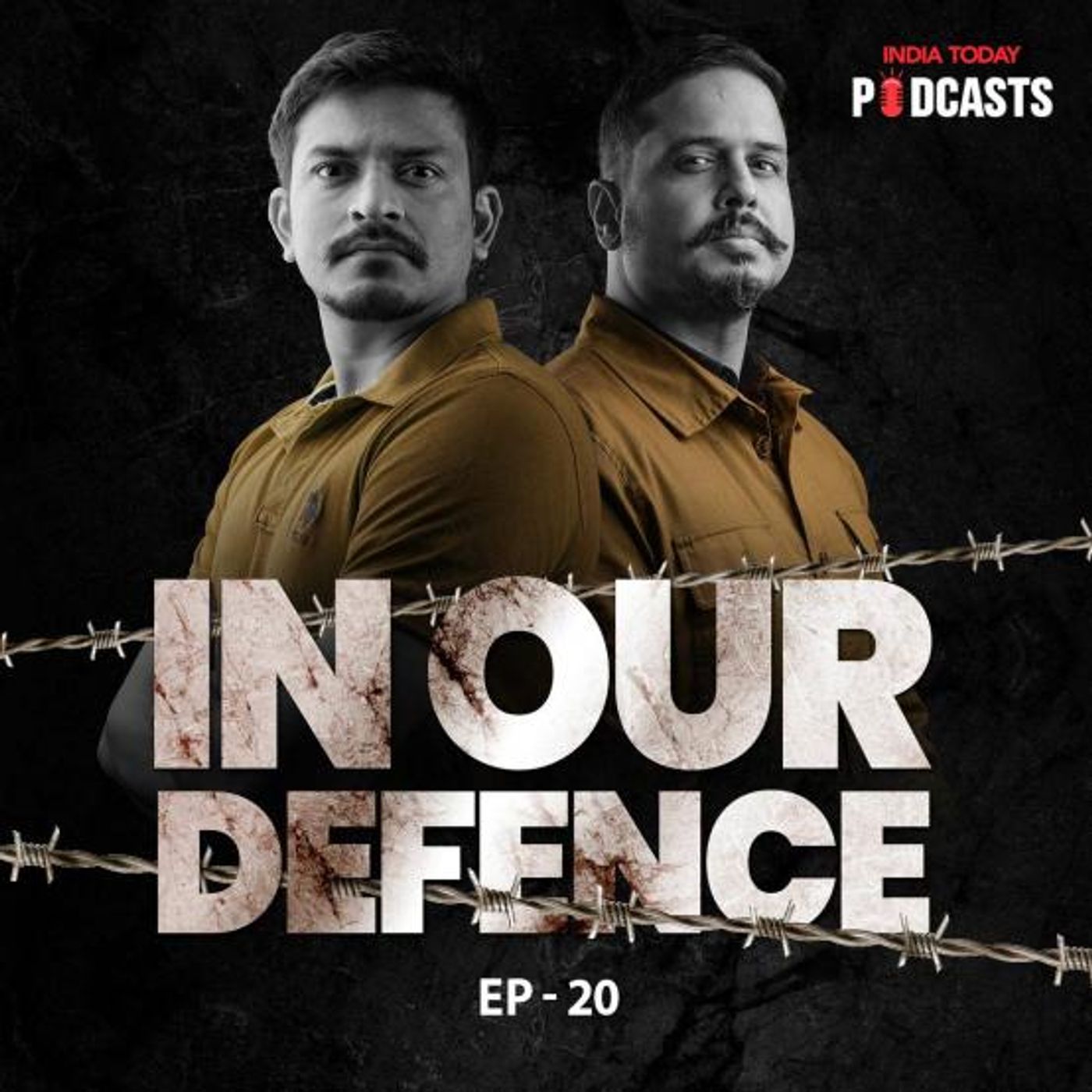
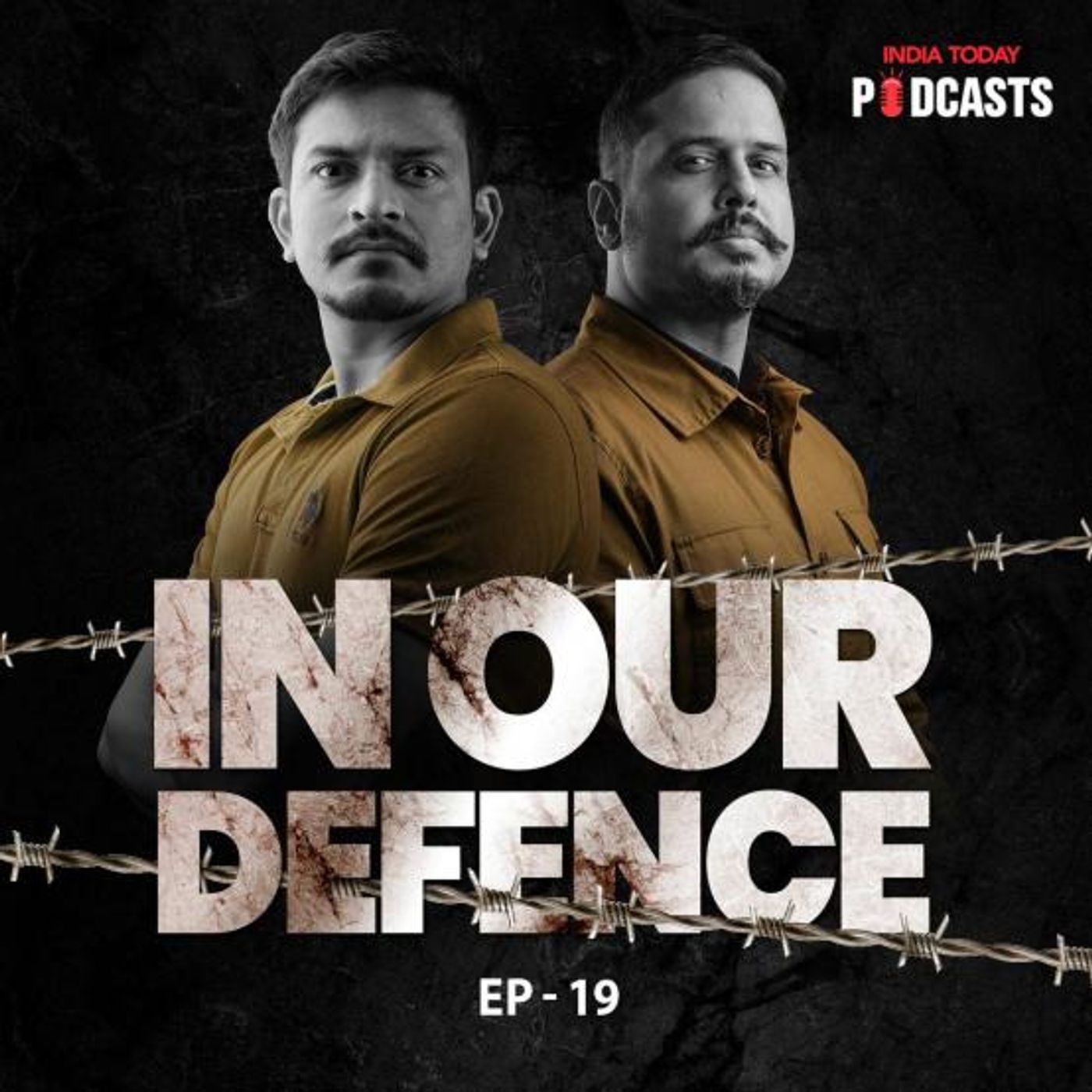
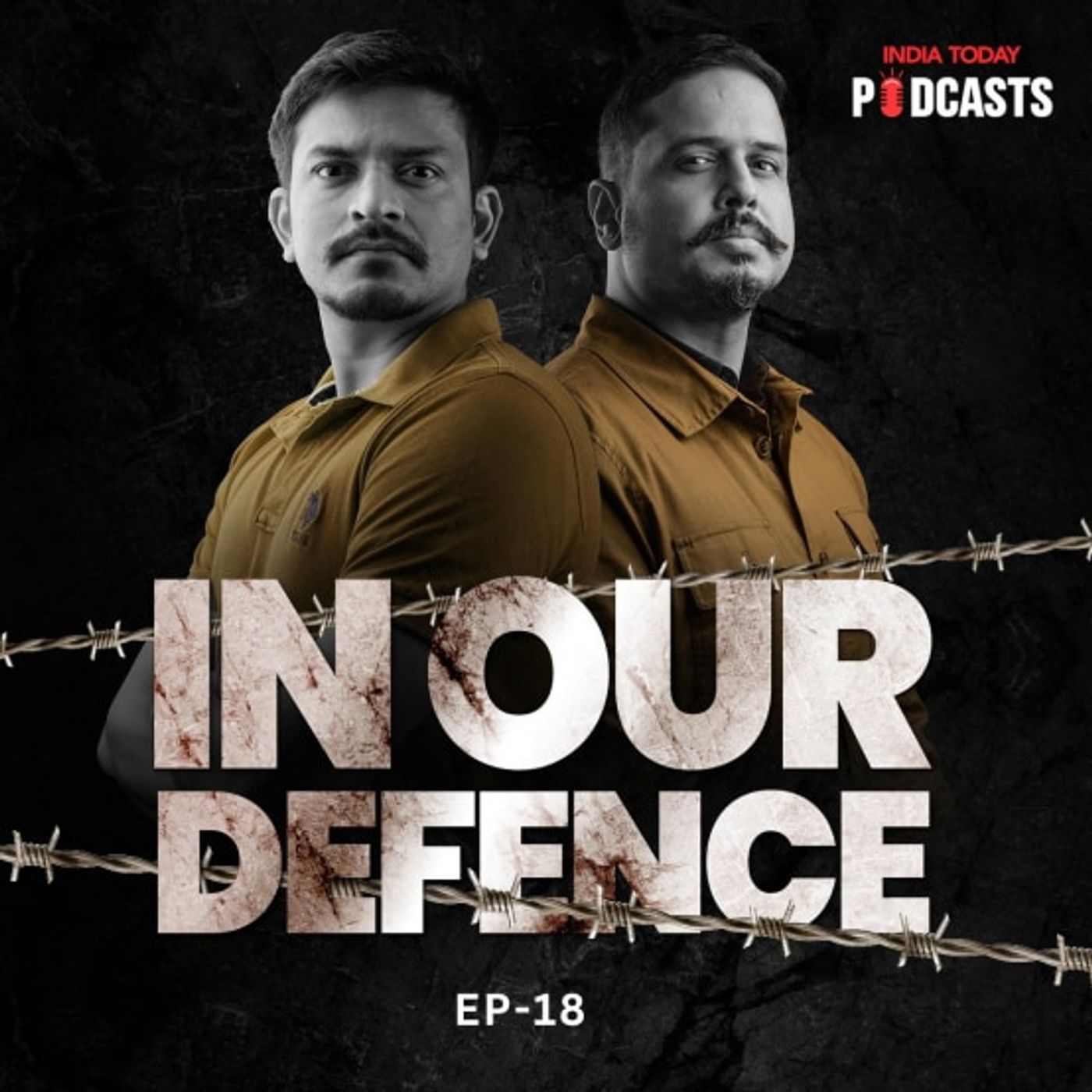

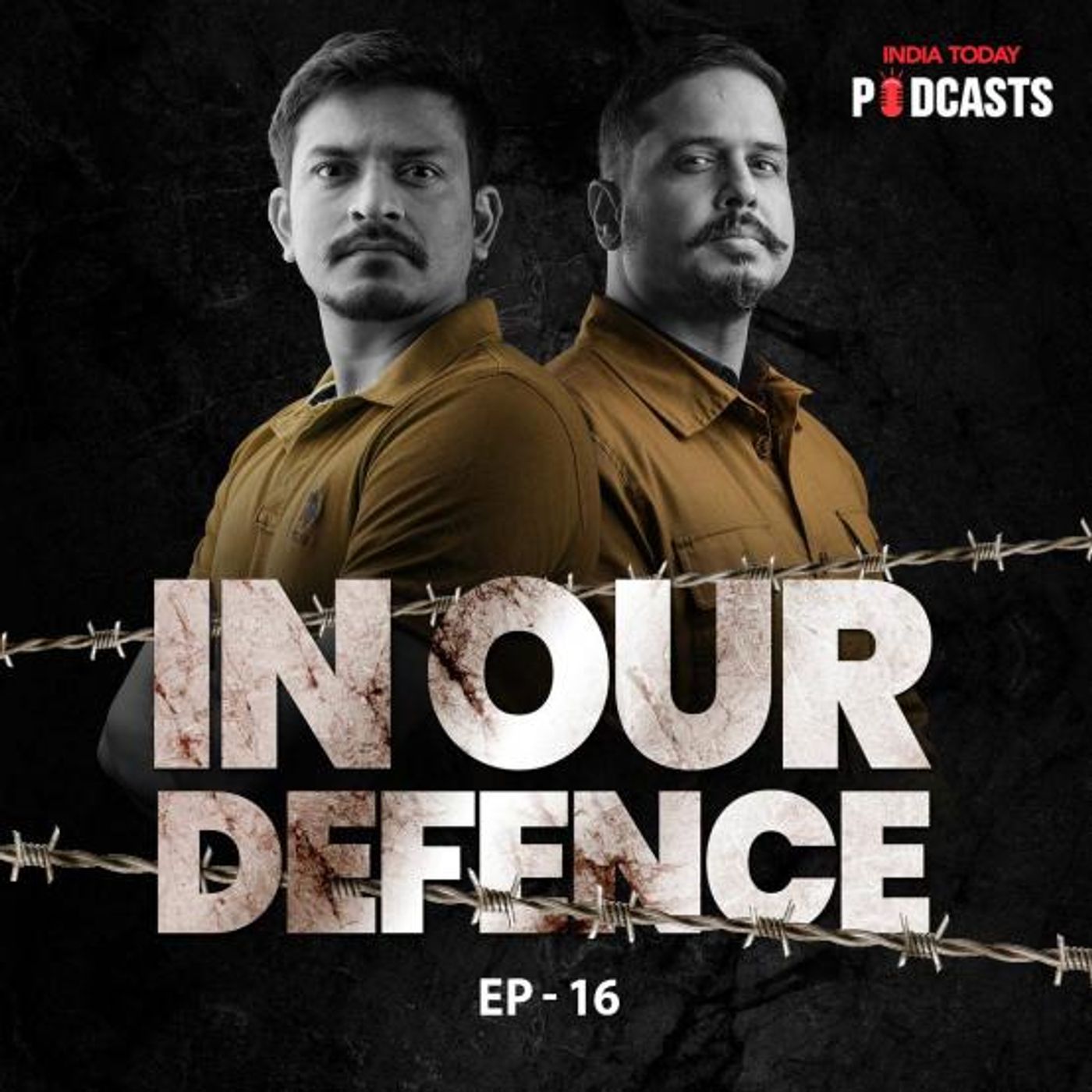
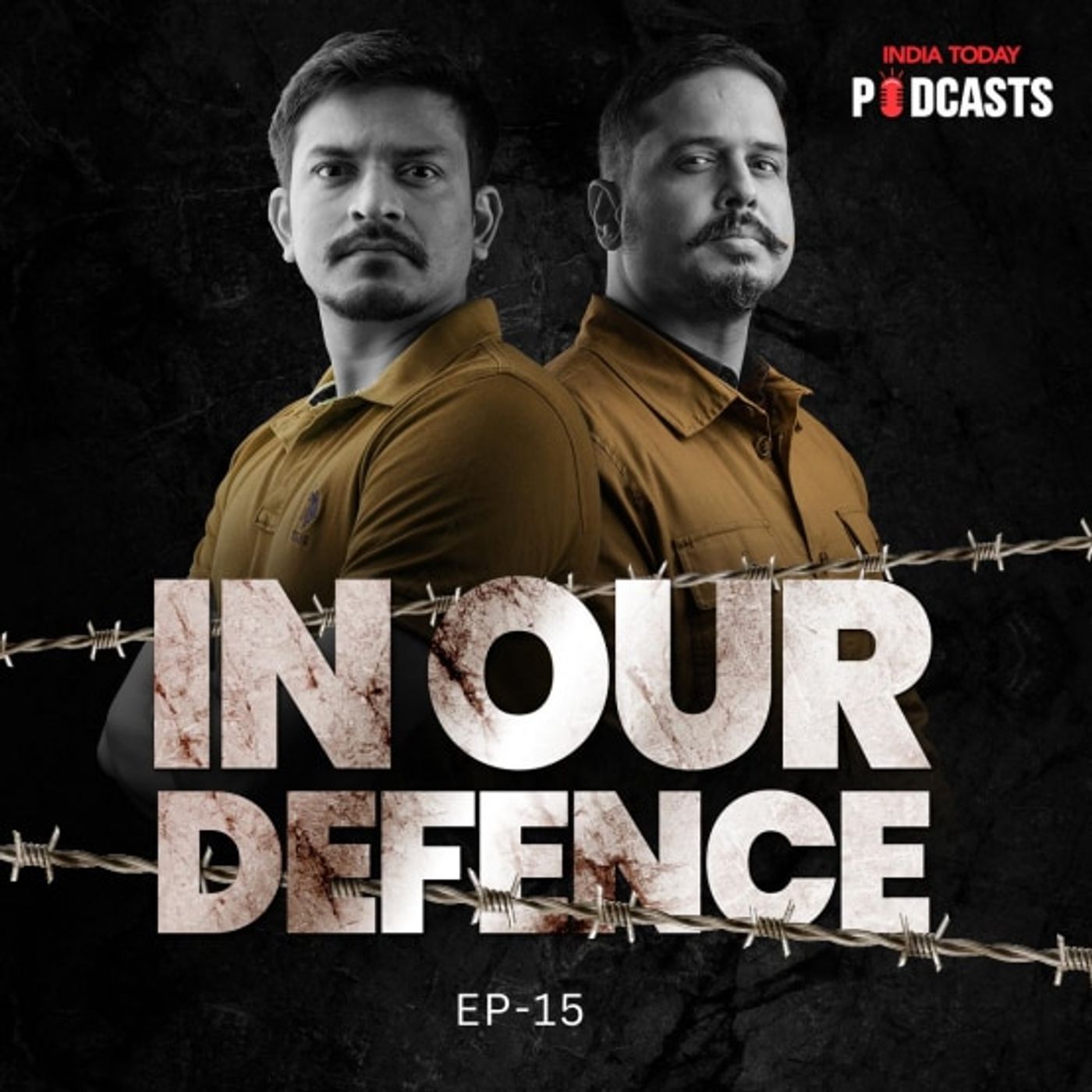
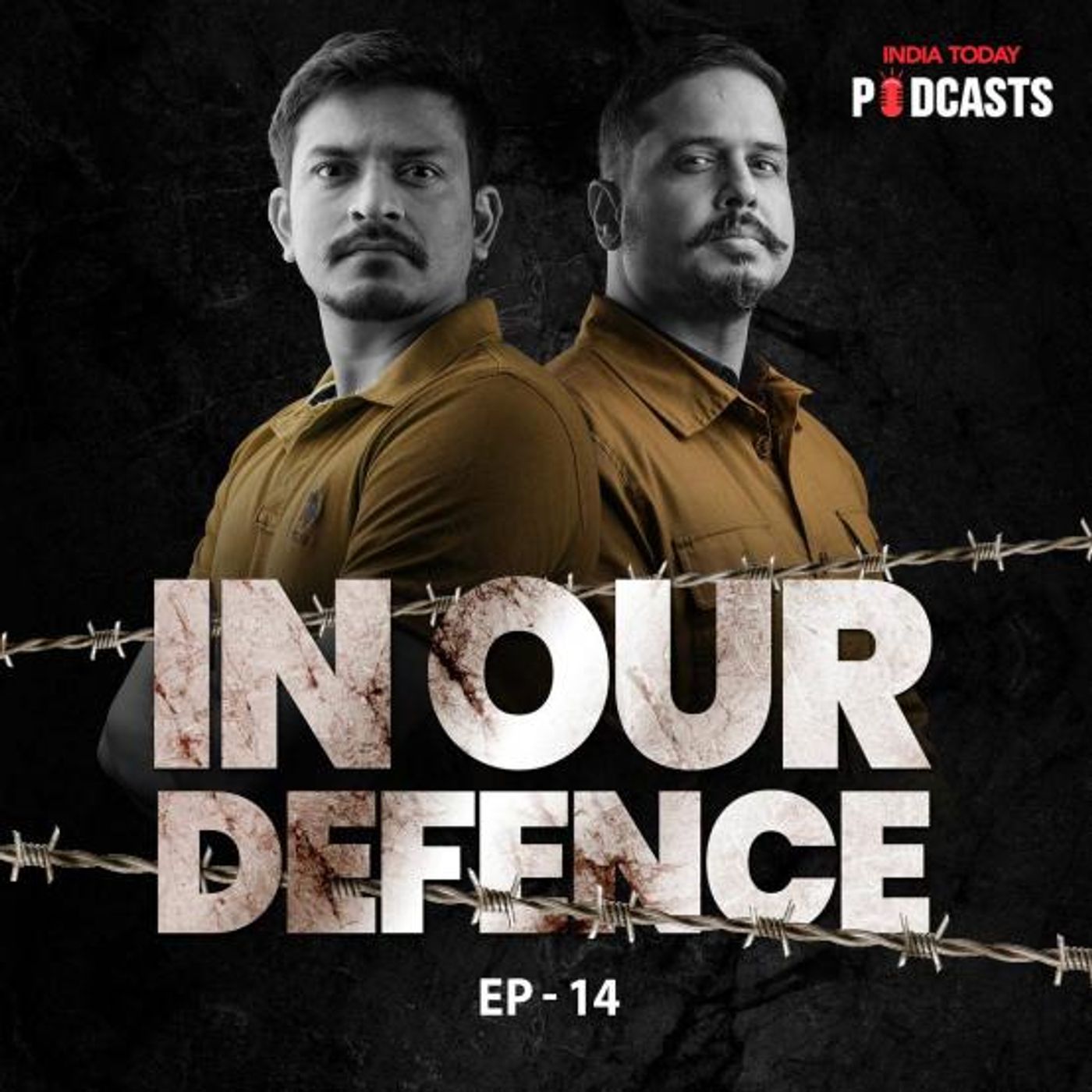
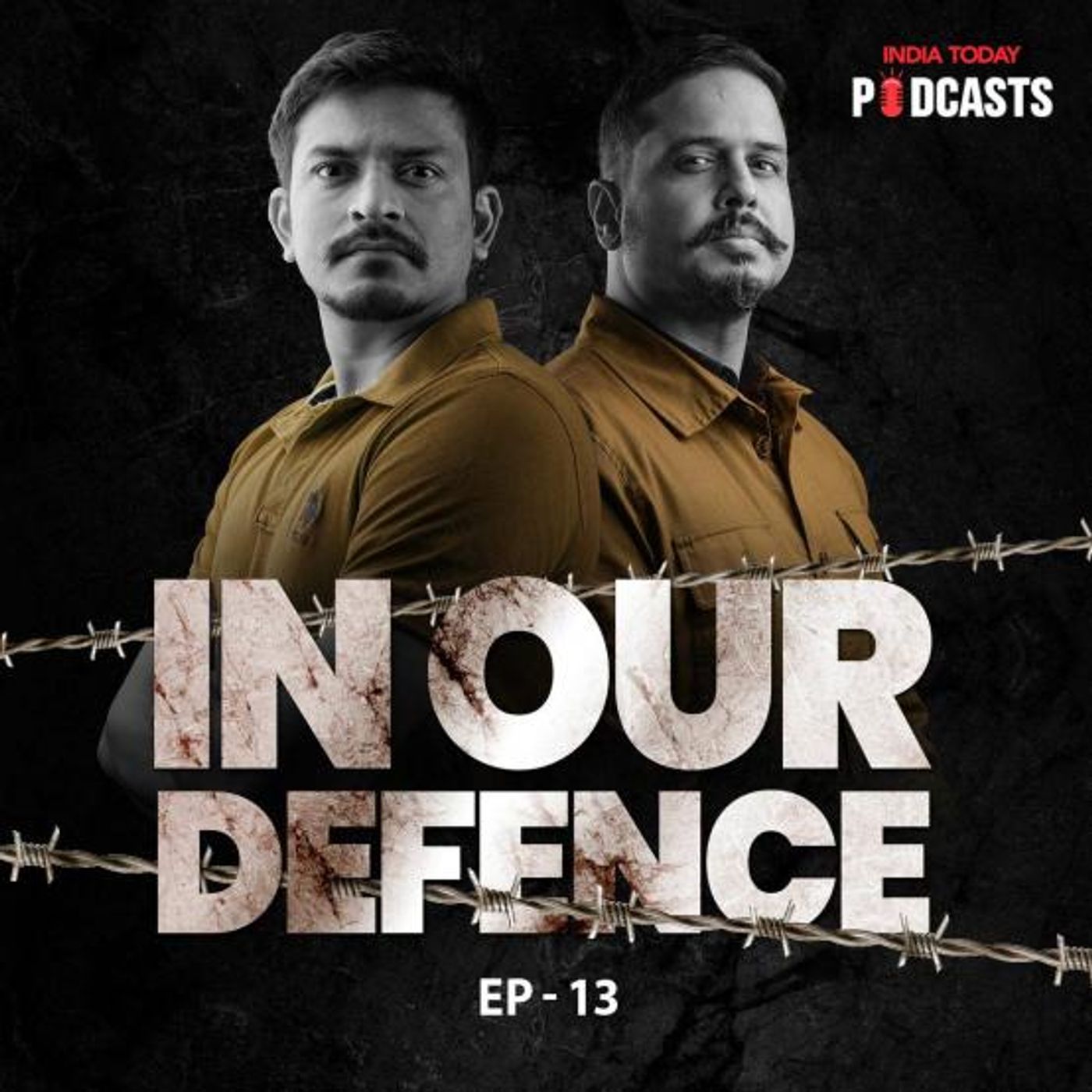
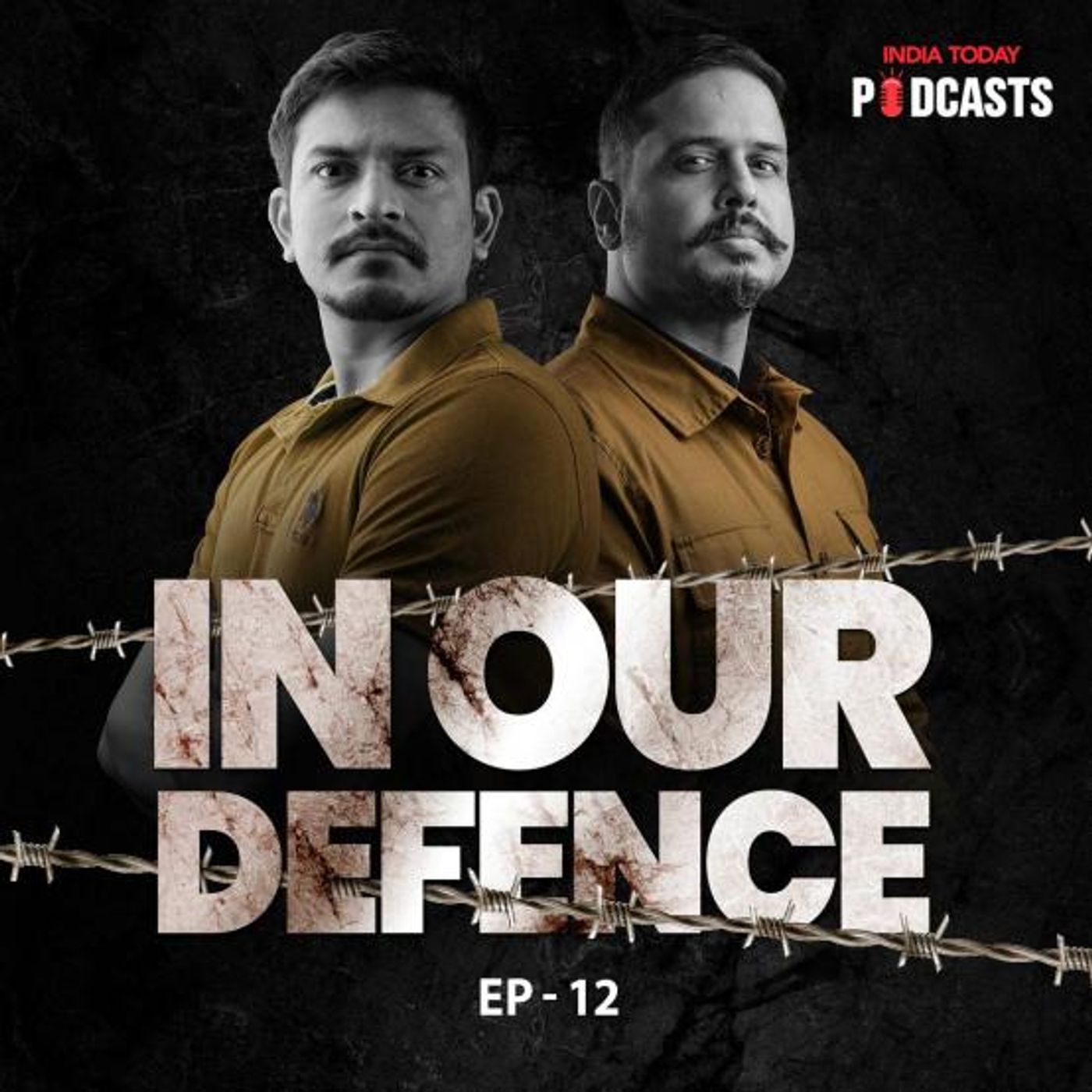
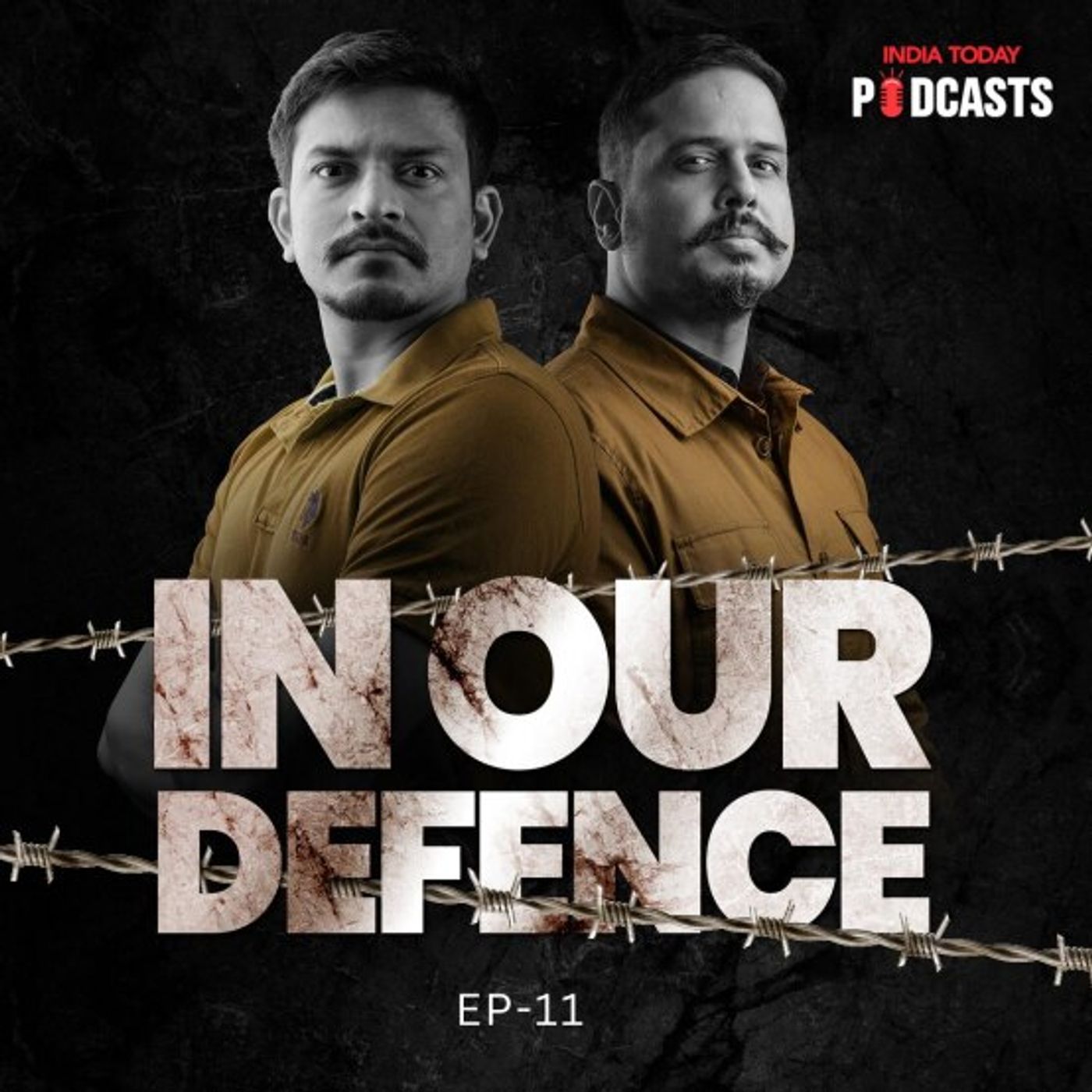
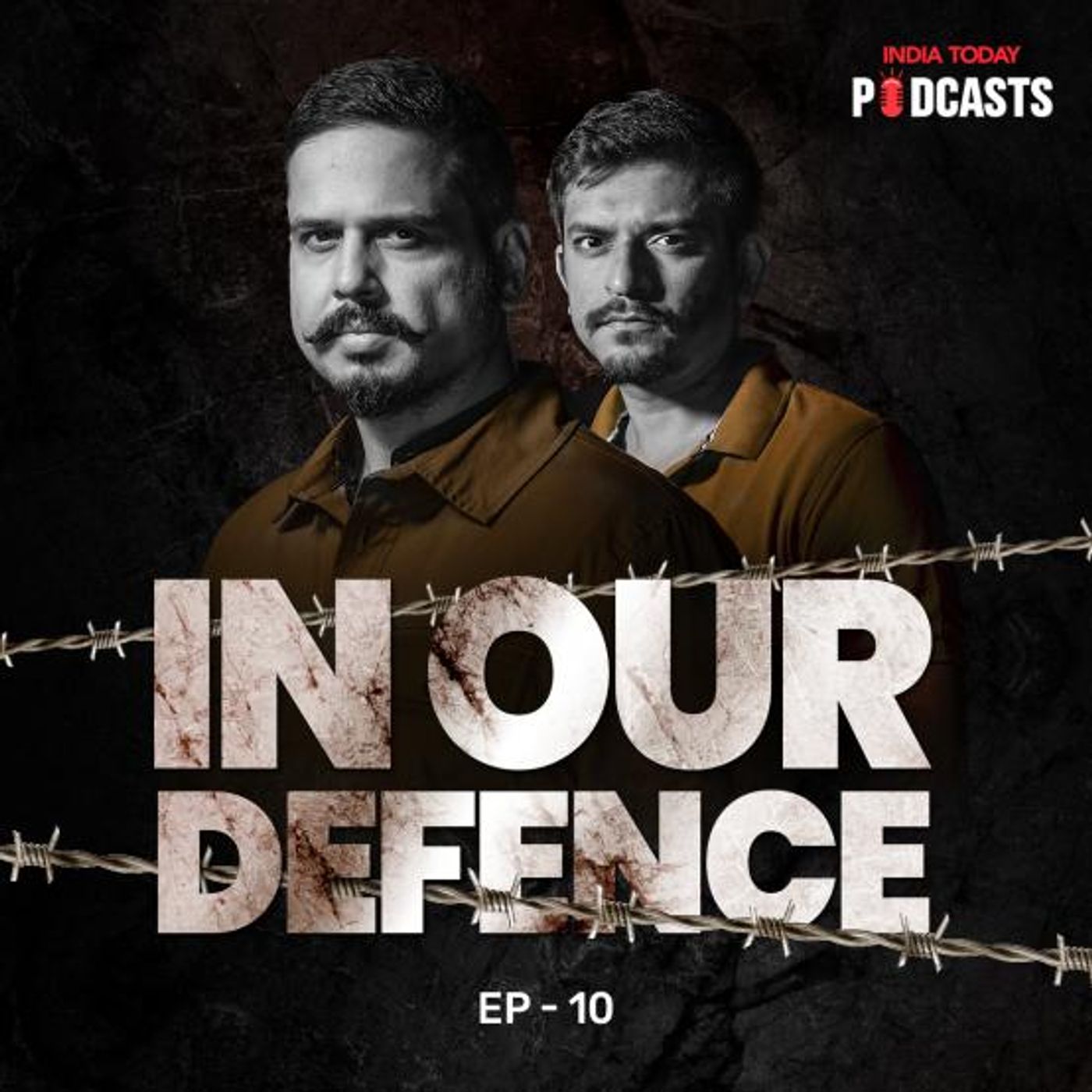
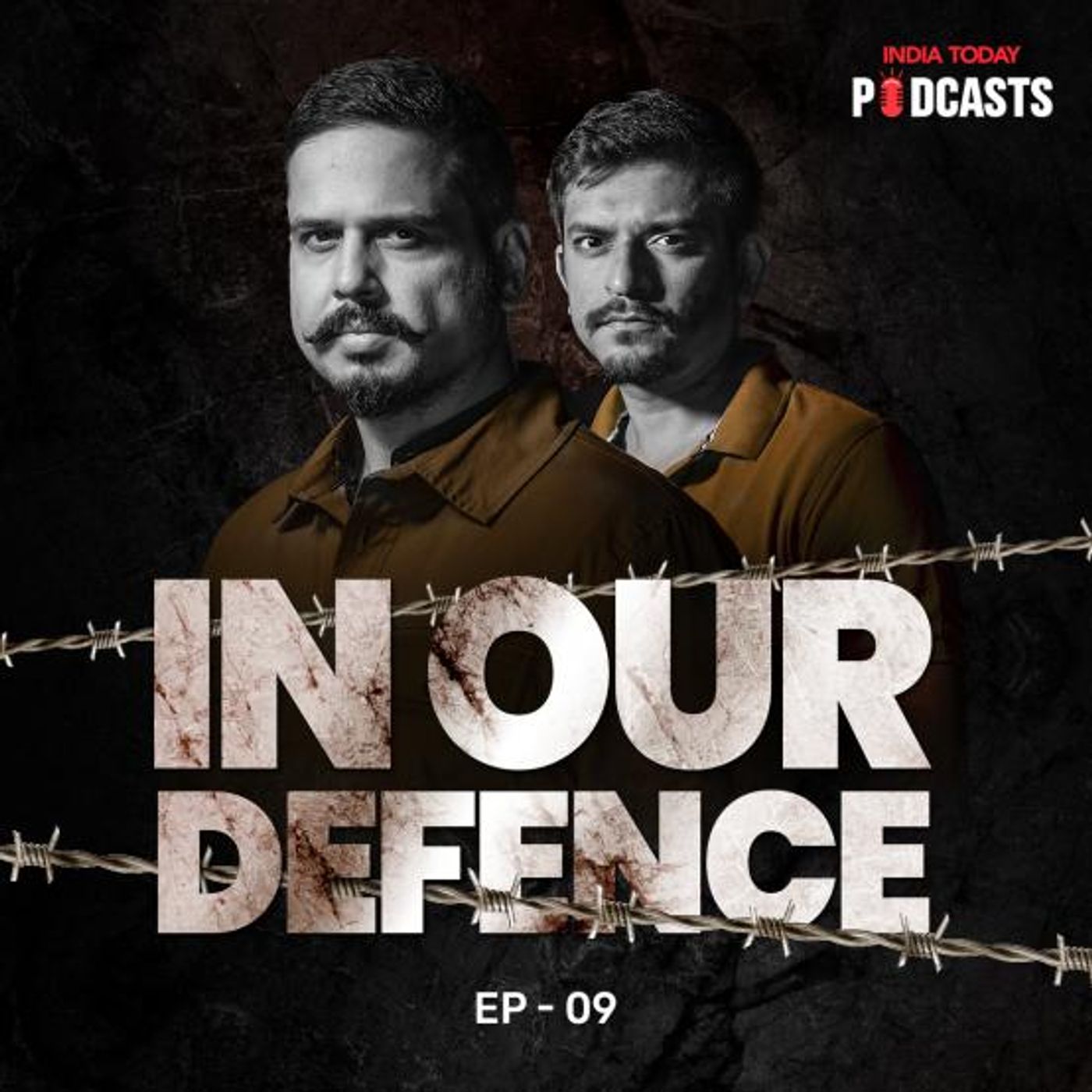
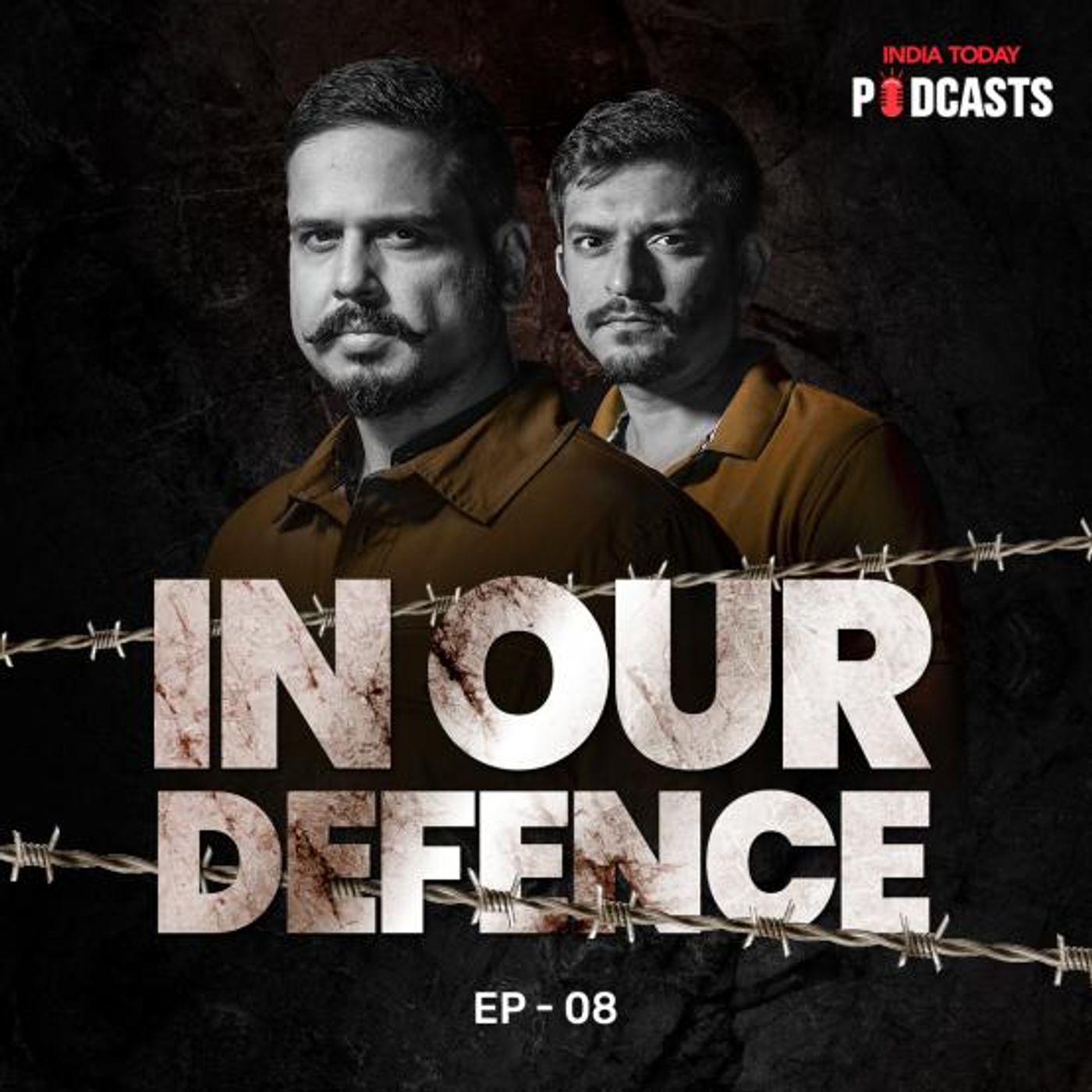
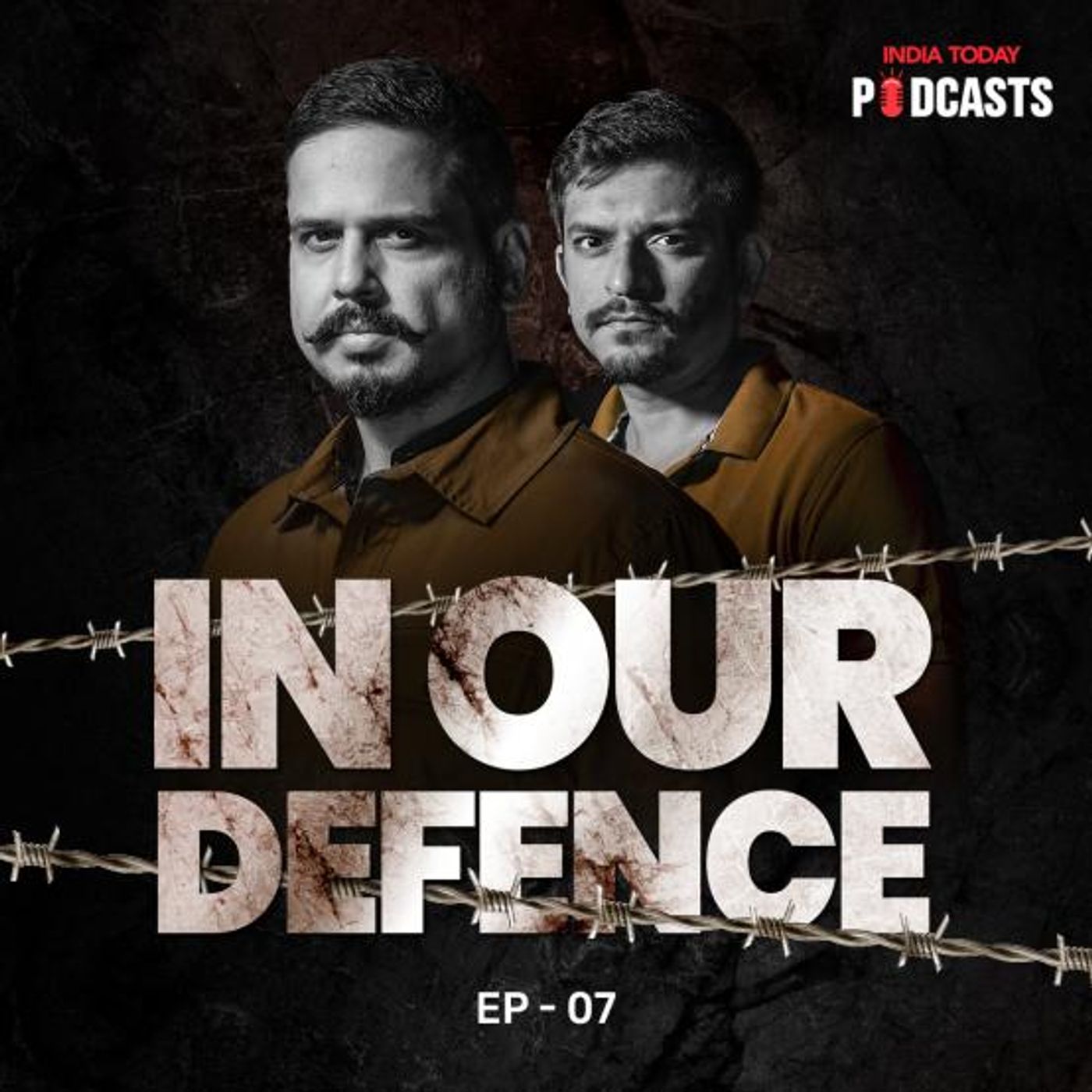
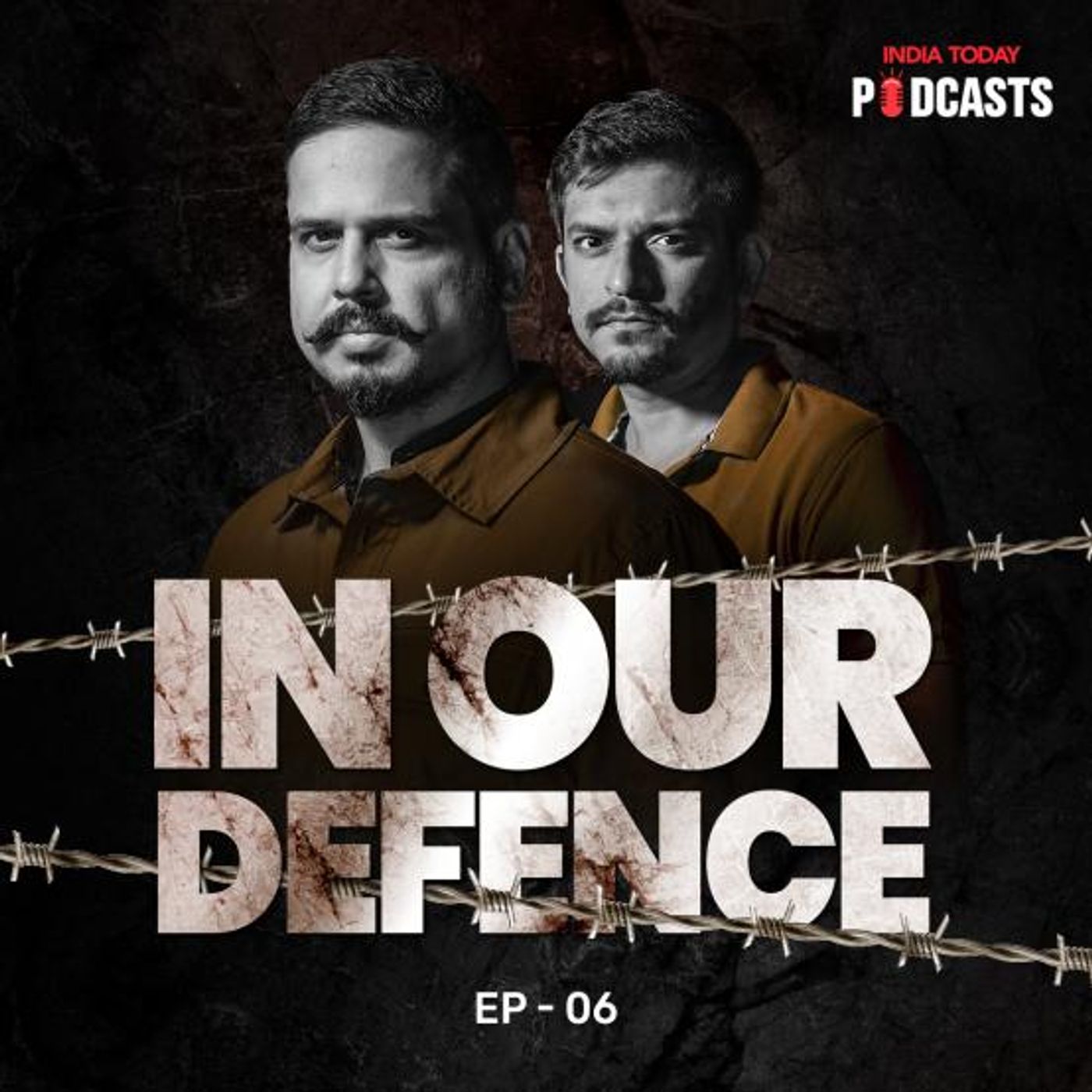
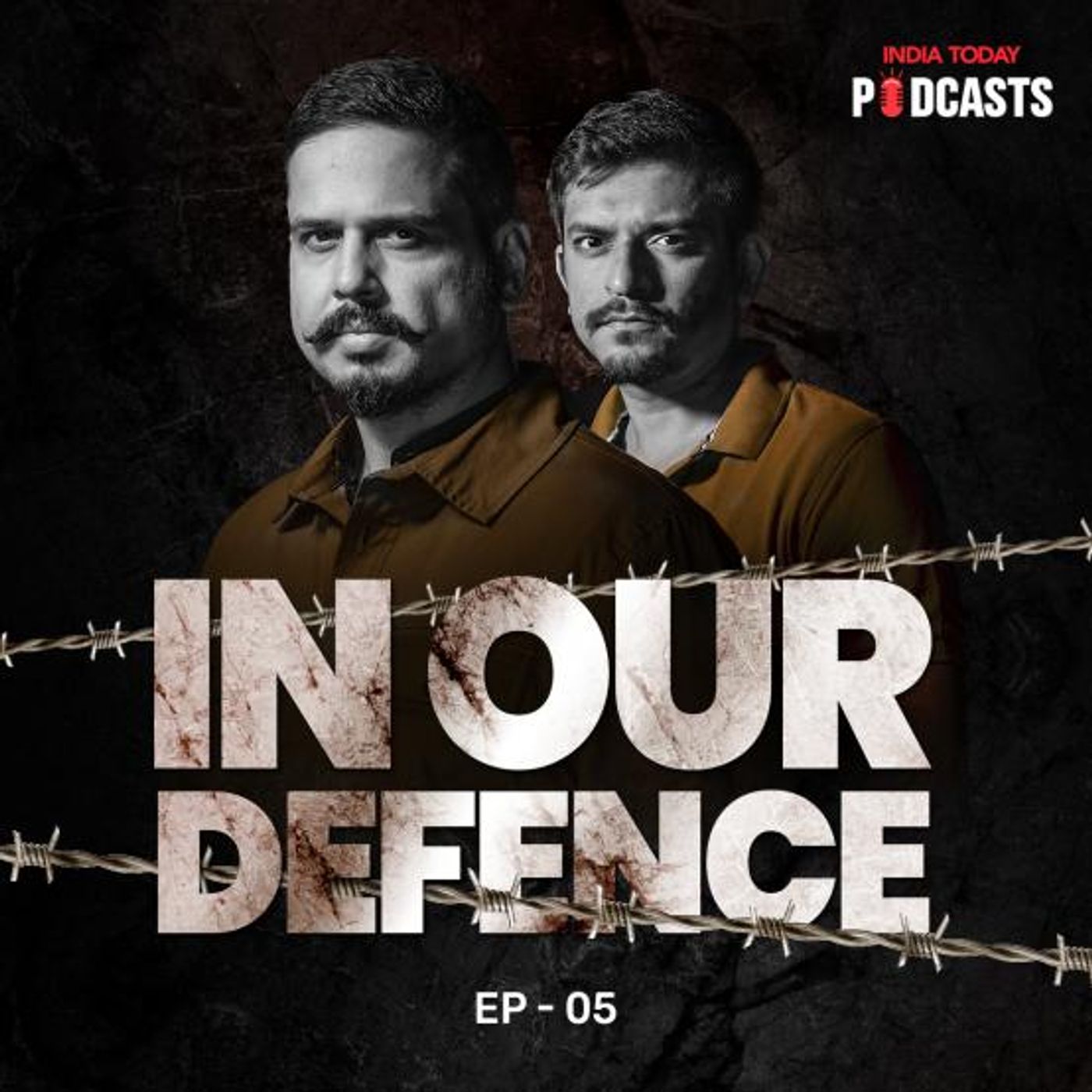
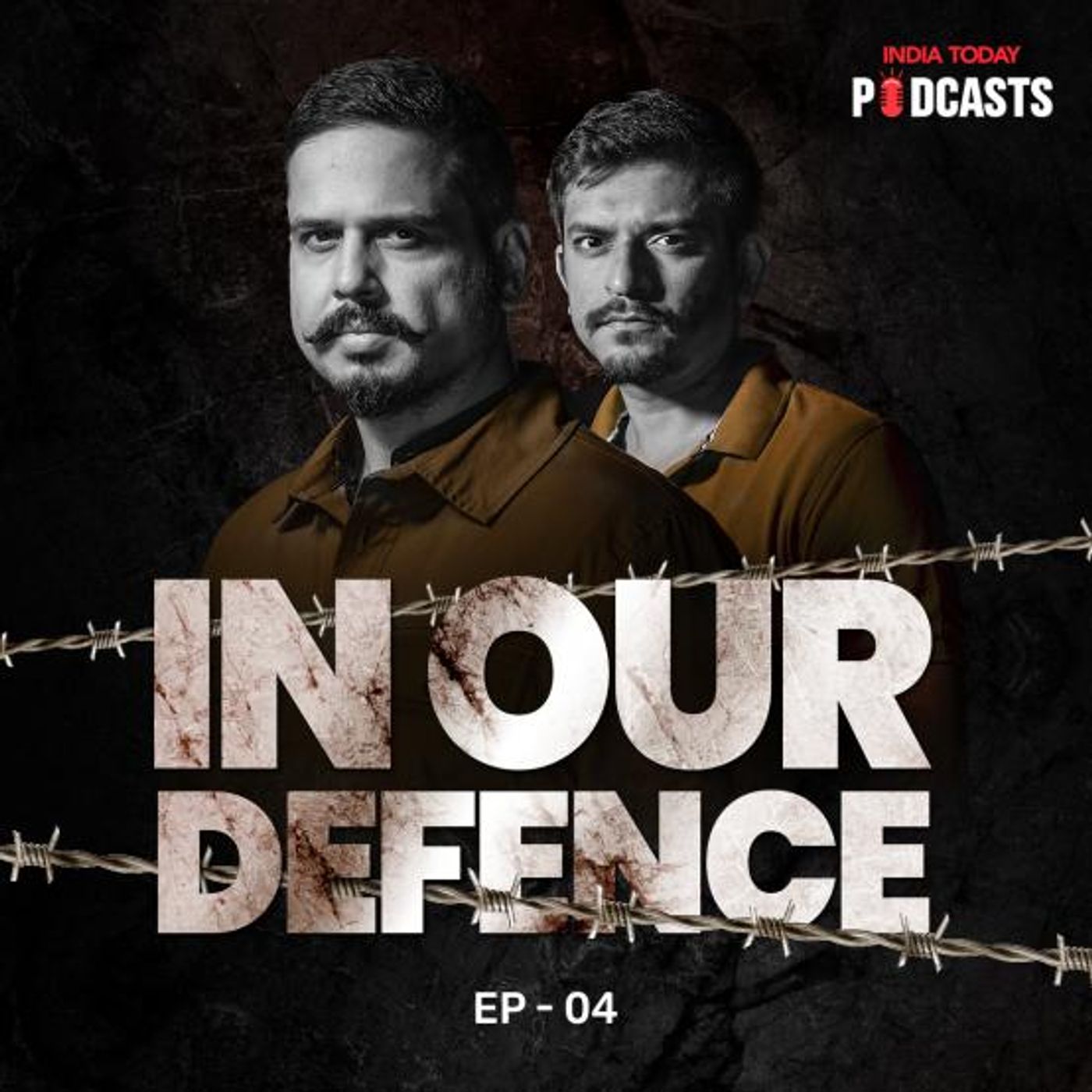
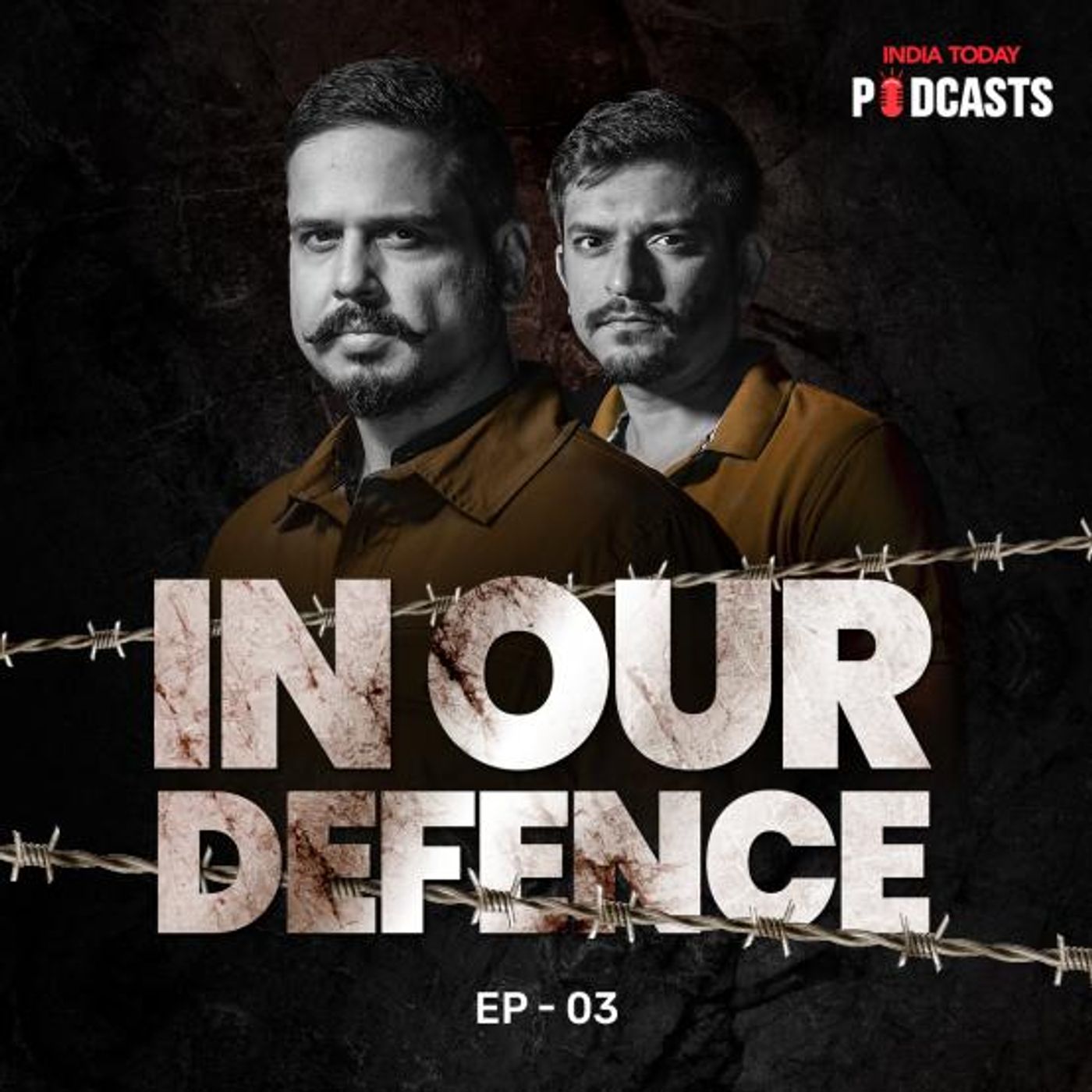
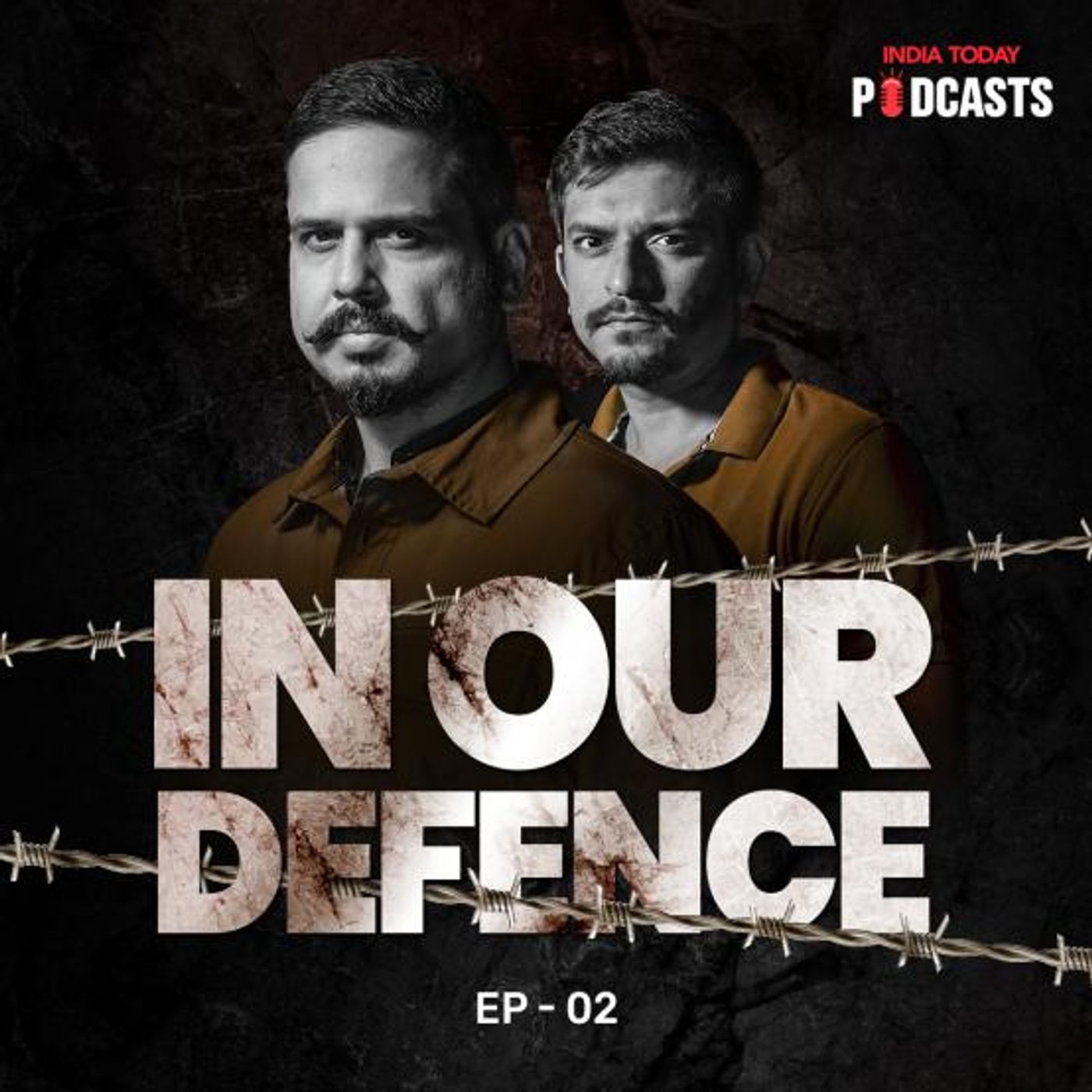
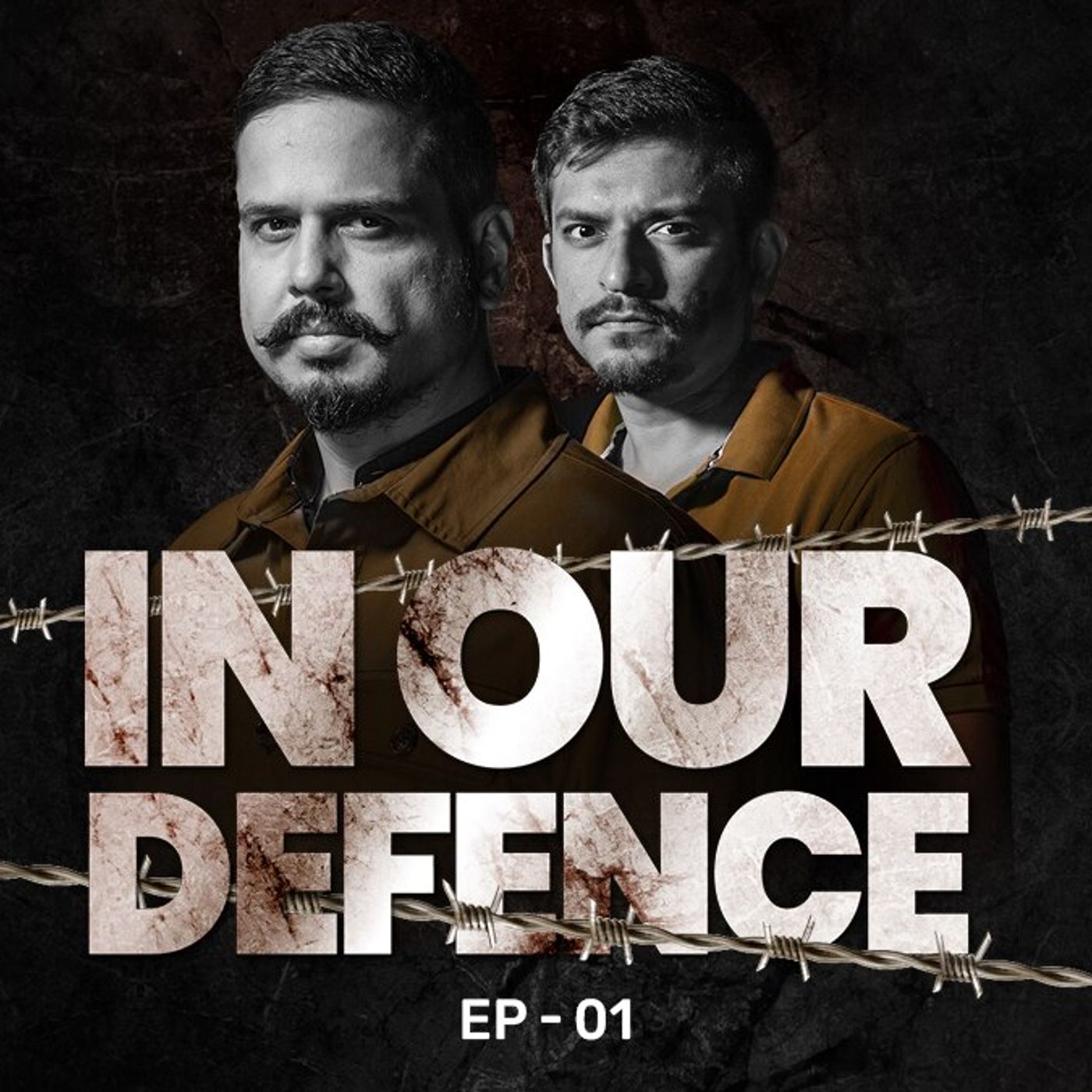



Jai hind!! 🇮🇳
these episodes are so knowledgeable!